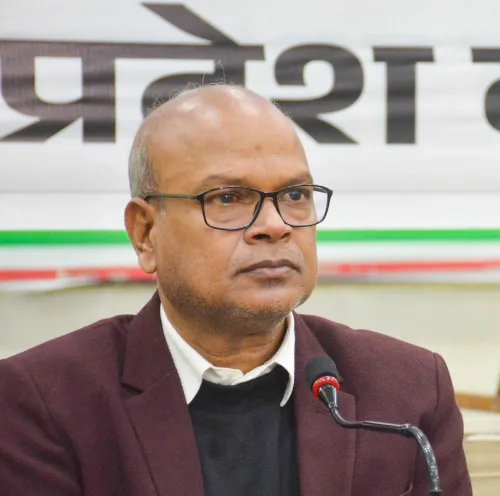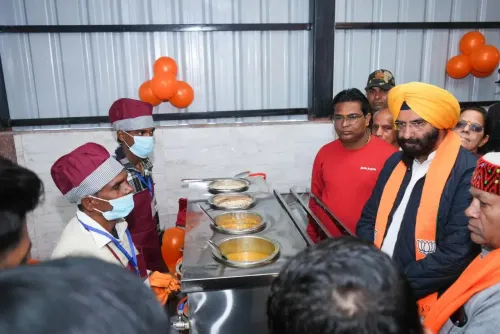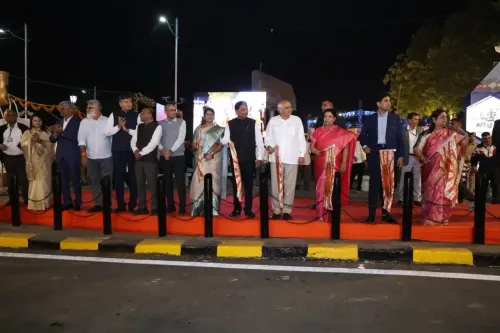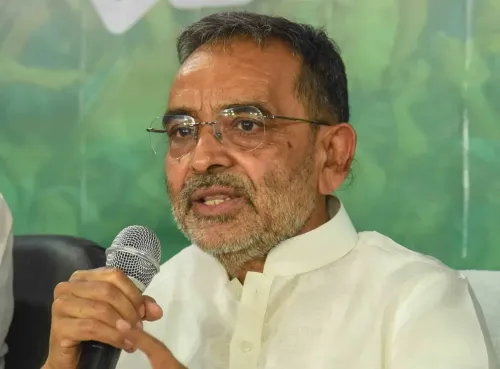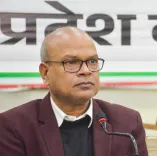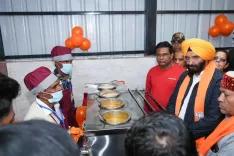What Achievements Did MoS Malhotra Highlight in the 100-Day Report Card?
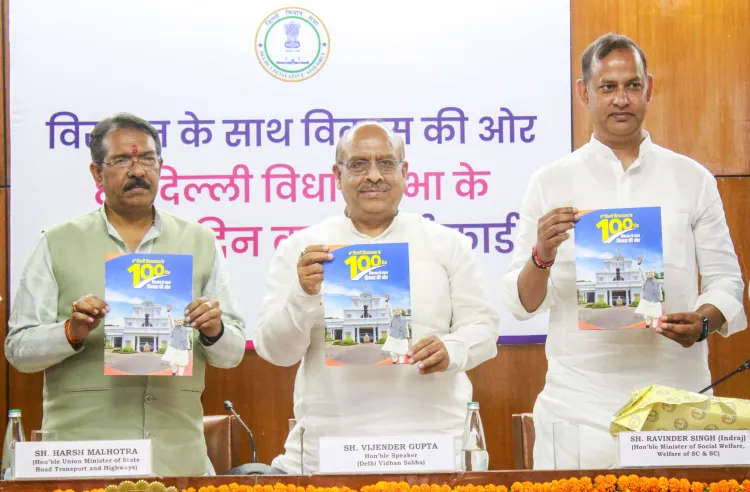
Synopsis
Key Takeaways
- 500 KW solar power plant initiated.
- Transition to a paperless legislature through NeVA.
- Modernization of the Assembly Library into a digital hub.
- Strong emphasis on heritage conservation.
- Balanced leadership and improved Assembly conduct.
New Delhi, June 6 (NationPress) The initiation of a 500 KW solar power plant and initiatives to transition the legislature to a paperless format were among the top successes emphasized in the 100-day report card of the Eighth Legislative Assembly released on Friday.
Union Minister of State for Road Transport and Highways Harsh Malhotra presented the report card alongside Speaker Vijender Gupta, commending the latter's environmental initiatives.
Other significant accomplishments noted in the report included a two-day training program for legislators, the transformation of the Assembly Library into a state-of-the-art digital knowledge resource hub, and a comprehensive heritage conservation strategy aimed at preserving the Assembly's architectural and historical significance.
During his speech, Malhotra praised the Assembly's outstanding work, calling the report card “a testament to extraordinary achievements” and celebrating its forward-thinking theme of ‘Virasat se Vikas ki Ore’— a journey from heritage to progress.
Reflecting on his early days in public service, he fondly recounted his time working under Gupta in the MCD, recognizing him as a mentor whose focus on duty and discipline still guides him in his parliamentary responsibilities.
Malhotra highlighted the Speaker's balanced leadership, noting a noticeable improvement in the conduct of Assembly sessions over the past 100 days.
“Throughout this period, we have not experienced the kind of disruptions that had become all too familiar in the last decade,” he noted.
“Speaker Gupta has upheld democratic principles, offered equal opportunities to the Opposition, and maintained the dignity of the House,” Malhotra stated.
Emphasizing the Assembly's historical and cultural importance, Malhotra referred to the premises as a “living heritage,” stressing the need for its preservation for future generations.
In his address, Speaker Gupta reiterated the Delhi Legislative Assembly’s steadfast commitment to transparency, sustainable development, and cultural conservation.
He pointed out that the Report Card is not just a record of legislative performance but also represents an evolving, citizen-centric legislative ethos.
Gupta underscored key milestones achieved in the Assembly's first 100 days, including the successful deployment of the National e-Vidhan Application (NeVA) to promote a paperless legislature and the groundbreaking for the 500 kW solar power plant, highlighting the Assembly’s pledge to clean energy and green governance.


